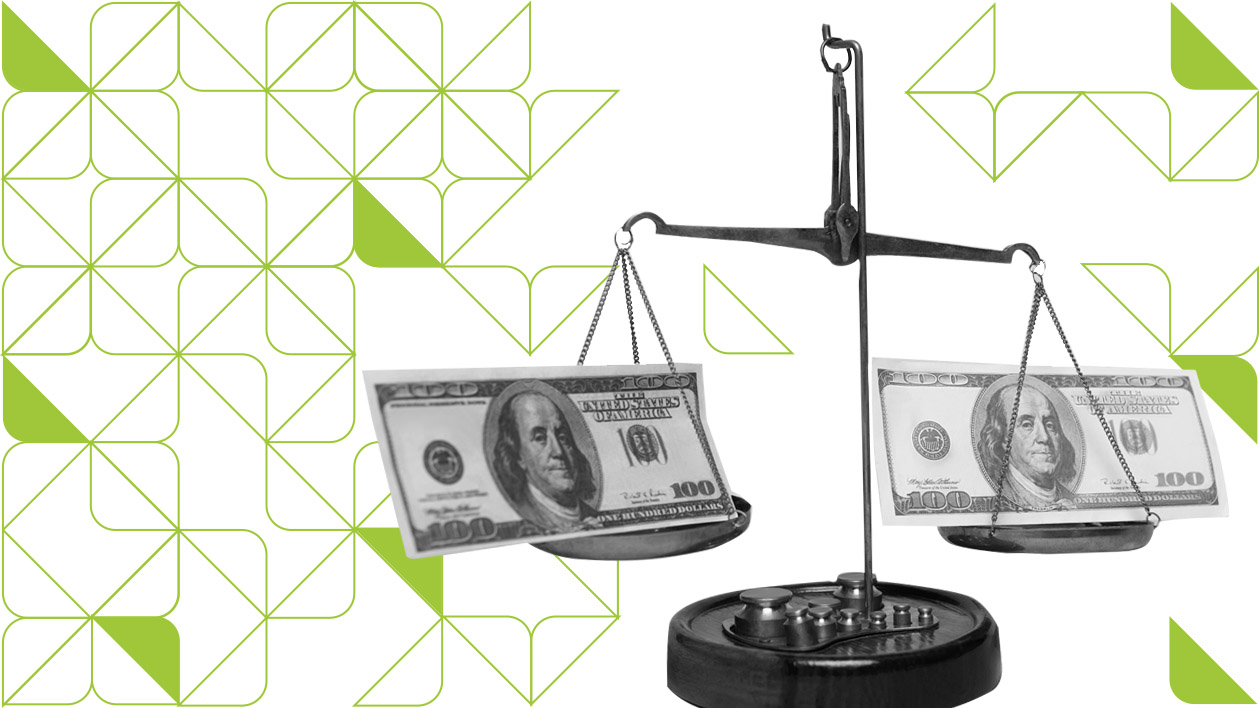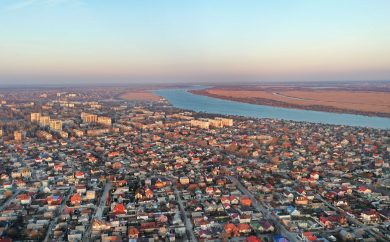The 2024 Corruption Perceptions and Experience Poll conducted under the USAID/ENGAGE Activity reveals that while Ukrainians’ personal encounters with corruption have plummeted since 2007, the society increasingly and overwhelmingly believes that corruption is a primary national concern, second only to the war. Citizens’ experience with reporting on instances of corruption has grown more than two-fold since 2007 but remains relatively low. Yet, there is an increasing trend since 2015 for the majority of Ukrainians to reject any justification for bribery or other forms of corruption, and nearly half of Ukrainians remain willing to stand up for their rights when dealing with government officials.
Key Findings
- Citizens’ Perception of Corruption as a Major Issue Remains High: Corruption continues to be a critical concern for Ukrainians, with 92% identifying it as a severe national issue in 2024, second only to the war. Public concern has remained consistently high over the past two decades, with 90% perceiving corruption as a major issue in 2007, 93% in 2009, 92% in 2011, and 94% in 2015, 2018, and 2021. Although there was a slight decline to 89% in 2023, perceptions of grand and political corruption remain especially strong, underscoring the enduring severity of the issue.
- Nuanced Rejection of Bribery and Other Forms of Corruption Shows Positive Trends: Fifty-four percent of Ukrainians believe that giving bribes or offering unofficial services or gifts to resolve an important personal matter is never justified, up from 37% in 2015. However, externally displaced Ukrainians are more likely to justify informal payments to resolve personal issues.
- Ukrainians See Ordinary Citizens and Civil Society as Key to Fighting Corruption: With only 32% finding government anti-corruption efforts effective (down from 50% in 2023), Ukrainians increasingly view ordinary citizens as essential to overcoming corruption, with 74% expressing this belief in 2024 (down from 79% in 2023). Support for media and NGOs remains strong, with 38% seeing each as willing to combat corruption, though slightly lower than 2023. Confidence in government willingness is low, with only 19% for the President’s Office (down from 53%), and even lower for oblast (10%) and local governments (16%), underscoring public reliance on citizen-led efforts.
- Despite Increased Readiness to Fight for Their Rights, Barriers to Civic Engagement of Ukrainians Remain: Although 49% of respondents are willing to stand up for their rights (compared to 33% in 2007 and 26% in 2021), significant deterrents remain. Concerns about personal safety, skepticism about formal reporting mechanisms or channels, and fatigue from corruption’s pervasive impact limit more active civic engagement in dealing with corruption. 10% of Ukrainians say they have reported on instances of corruption – a stably growing trend since 2% in 2015, yet 68% cite low trust in government as a barrier to engaging in anti-corruption activities.
- Citizens’ Experiences with Corruption Remain at Historic Lows: Only 15% of respondents reported personal or familial encounters with corruption in the past year, a figure that has remained stable since 2021. This marks a significant decline from 61% in 2007 and 41% in 2018.
- Regional Disparities in Corruption Perceptions: Perceptions of increasing corruption vary significantly across Ukraine’s regions. Mykolaiv (69%) and Poltava (66%) oblasts register the highest concerns, with the majority of respondents feeling that corruption has worsened over the past year. Odesa oblast also reports elevated concern at 64%. In contrast, Dnipropetrovsk (36%) and Kyiv city (40%) show comparatively lower levels of perceived increase, suggesting these areas feel less impacted. Notably, Vinnytsia oblast stands out with 8% of respondents perceiving a decrease in corruption.
- Challenges for Displaced Populations: Internally displaced persons (IDPs) face the highest corruption levels (18%) among the groups surveyed, reflecting the obstacles they encounter in accessing government and social services. IDPs also reported higher reliance on personal connections to resolve issues compared to the general population. Externally displaced persons (EDPs), while experiencing corruption less frequently, show reluctance to discuss it, potentially indicating detachment from Ukrainian institutions abroad.
- Increasing Instances of Corruption in Critical Sectors: Significant increases in bribery and extortion have been reported in several sectors from 2021 to 2024. Secondary education saw a notable rise in extortion encounters, from 22% in 2023 to 29% in 2024, though still lower than the 44% reported in 2021. Healthcare encounters increased to 26% in 2024, up from 24% in 2021, despite a peak at 39% in 2023. The National Police also saw a substantial rise, with 25% in 2024, up from 18% in 2023. Land use services experienced one of the largest jumps, from 14% in 2023 to 25% in 2024. Tax services also recorded an increase, from 6% in 2023 to 13% in 2024. Urban residents and those aged 30-44 remain the most affected, with 19% of this group reporting personal or family encounters with corruption.
Demand for Effective Anti-Corruption Measures
The call for stronger anti-corruption measures remains clear, with 92% of Ukrainians viewing corruption as a severe issue, yet only 32% believing in the effectiveness of the government’s response—a sharp drop from 50% in 2023. While personal encounters with corruption remain low (15% in 2024, down from 61% in 2007), perceptions of systemic corruption are high, particularly in sectors like education, healthcare, and law enforcement, where extortion rates have risen since 2021.
Despite growing willingness to fight corruption (49% in 2024, up from 26% in 2021), engagement is hindered by personal safety concerns and distrust in reporting mechanisms. Only 10% report corruption incidents, reflecting persistent barriers. With 54% now rejecting bribery outright, Ukrainians seek accountable leadership and targeted actions in high-risk sectors, alongside greater support for citizen engagement, especially for displaced populations reliant on informal networks for access to services.
Methodology
This poll, part of the eighth Corruption Perception and Experience series, was conducted from June to August 2024 by the Kyiv International Institute of Sociology (KIIS). It surveyed 13,151 respondents across three groups: general population, internally displaced Ukrainians (IDPs), and externally displaced Ukrainians (EDPs). Methodologies included stratified random sampling for the general population, in-person interviews for IDPs, and a mix of online and phone surveys for EDPs. The margin of error is ±1.5% at a 95% confidence level. This poll has been conducted regularly with USAID funding since 2007, providing critical insights into public perceptions and experiences of corruption in Ukraine.
About USAID/ENGAGE
The primary development challenge that the ENGAGE activity addresses is the lack of citizen awareness and engagement in civic activities. ENGAGE also works towards a broader goal of improving citizen oversight and engagement in governance processes.


